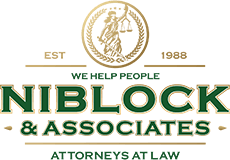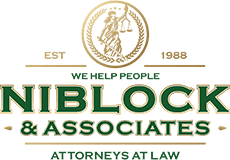Home ownership is so much more than a defined legal right in real estate. Your home is the place where life happens … where memories are housed, family celebrated, hurts healed and dreams hatched. Your home is also, in most cases in America, your most valuable financial asset, and your largest debt. For this reason, when faced with any attack on ownership and possession of your home in the form of a lender foreclosure, tax sale, judgment enforcement, sheriff sale, or any related action, the first call you should make should be to a Pine Bluff bankruptcy attorney who can guide you through the many options you have available to protect your home and your family. And you do have options!
Let’s talk a bit about how the law treats real property that qualifies as a personal residence — meaning your primary residence, your home. In addition, that discussion would be incomplete without an examination of the nature and consequences of a default in the payments on the loan that was used to purchase that home, or that is secured by the equity of the home. Finally we will briefly lay out some legal options that are uniquely available to a homeowner and that homeowner”s personal residence, because, as we said, it’s not just real estate, it’s your home!
First, although you may not feel that the law is on your side right now, your inherent rights as the owner of a primary residence are afforded very special, time-honored priories available in very few legal situations. Historically, the law has always granted unique and powerful remedies to homeowner status. As you know, the most recent real estate crash has been determined to have resulted from the reckless Wall Street securitization of loans that were used to purchase homes. Countless unsuspecting middle income Americans suffered, resulting in a new, consumer-friendly layer of oversight and protection being infused into the foreclosure system which attempts to guarantee that homeowners are aware and educated concerning their rights, and requiring lenders to offer alternatives to borrowers, and to account for their compliance in communication and adherence to those options.
Almost without exception, one’s primary residence by definition affords every qualifying homeowner an “exemption” or an amount of equity that is unavailable to creditors as repayment of debt. We can explain this is more detail, but in short it means that no matter the size or nature of the debt a creditor seeks to enforce, that creditor cannot access that first portion of your home’s equity equal to the homeowner’s exemption that applies to your situation. That amount can change based on variables such as the number and ages of the residents in your home, but it is very powerful, and creditors are very aware of it.
In addition, the loan used to buy your home, and, in most cases, any loan you incurred after you purchased the home, but secured by its equity, are generally not legally enforceable personal obligations in the sense that you would not have to pay them if you lost your home; these loans are likely what are referred to as “non-recourse” obligations. This means that the lender may look to the home’s value for repayment, but if the market doesn’t allow full repayment, the lender/creditor cannot look to the borrower for any “deficiency”. Again, these concepts and their application to your situation are personal and we can be more definitive and specific when you call.
So, what can you do if those dreaded certified notices have finally begun to arrive as a result of unmade mortgage payments?
Don’t ignore them! As we have generally explained in this article, you need to be aware of the powerful legal class you belong to due to your homeowner status. Hopefully you are beginning to appreciate the reality of those concepts now. Frankly, the initiation of foreclosure by your lender opens options to you that did not exist before that action was taken.
Take control! Remember, this is your home and the weight of judicial history and precedent empowers you with special class enforcement opportunities, but you need to utilize those rights. Learn exactly what you owe and what your home is worth, then protect it.
Stop the process! Powerful legal remedies are available to you that allow you and you and your attorney to put a legal “hold” on the lender-initiated march to a sale and repossession of your home, other assets, and generally enforcement of any debt. An automatic stay of any and all collection, repossession, or foreclosure happens the moment a bankruptcy is filed. It is ironclad and without exception. The stay is intended to give you time to regroup without the pressure and stress that the weight of unpayable debt carries so you and your attorney can plan. A creditor cannot even call you to discuss collection once the automatic stay is in place.
Start rebuilding! Now that the harassment and deadline pressures are controlled by the stay, you can determine long term payments plans (Chapter 13) or outright discharge, (Chapter7); in either case, the equity in your home, and the homeowners exemption are still yours.


